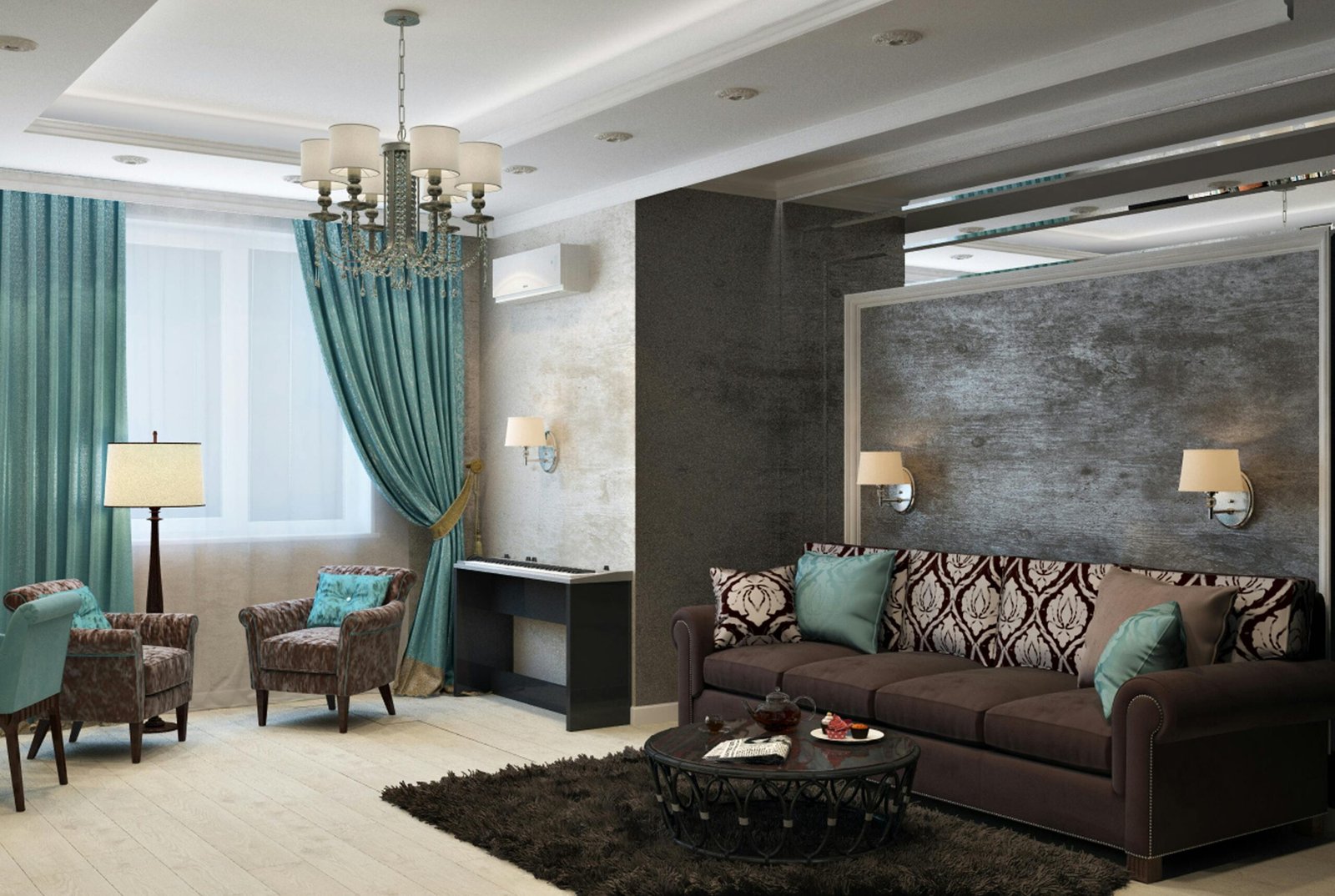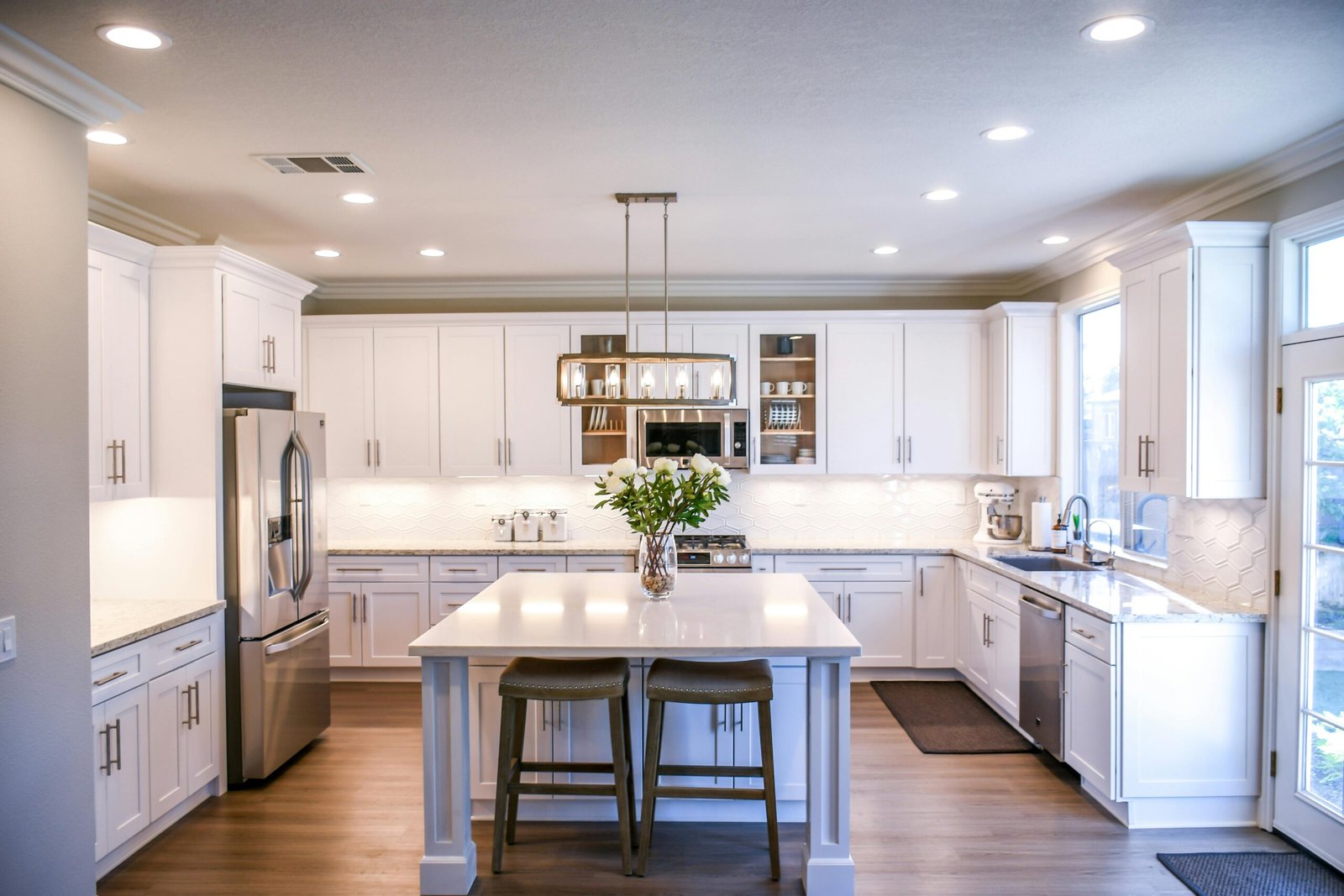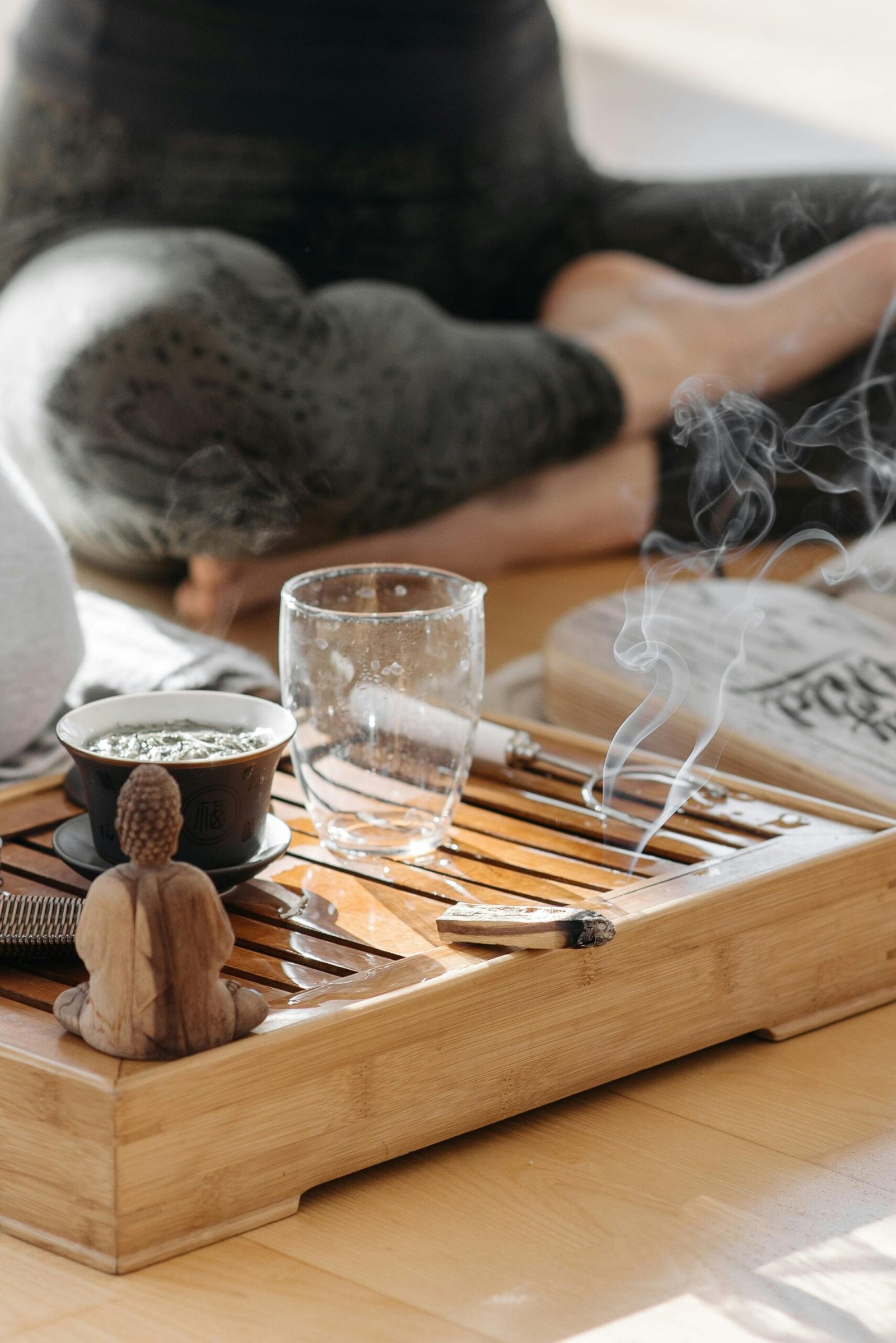Creating a harmonious living space is not just about arranging furniture aesthetically or choosing the right colors; it’s about balancing the energy of the environment to foster positive vibes and wellbeing. Feng Shui, an ancient Chinese practice, focuses on this very idea—how to use the flow of energy (or “Chi”) in your home to create peace, prosperity, and health.
Whether you’re new to Feng Shui or have tried it before, you can easily apply a few simple tips to enhance the energy of your home. In this guide, we’ll cover the fundamental principles of Feng Shui and offer actionable tips to create a harmonious home that supports your goals, relationships, and overall wellbeing.
1. Understanding Feng Shui: The Basics
Feng Shui translates to “wind-water” in Chinese, emphasizing the importance of balance and flow of energy in our surroundings. The goal is to align your space with natural forces, creating harmony between your environment and your inner self. In Feng Shui, each area of your home represents different aspects of life, such as wealth, relationships, health, and career.
There are key principles to follow, such as the Bagua map, which is a tool used to divide your home into specific zones based on the areas of life you want to enhance. Understanding these principles will help guide your decorating choices and create a balanced environment.
2. Declutter for Positive Energy
Clutter is one of the biggest energy blockages in any space. In Feng Shui, clutter is believed to prevent the free flow of Chi, leading to feelings of stagnation, anxiety, and even financial or emotional blockages.
How to declutter:
- Clear out unused items: Start by removing anything you don’t use or love. Donate, sell, or recycle items that don’t bring you joy or serve a purpose.
- Organize hidden spaces: Clutter doesn’t just show up on surfaces; it often lurks in drawers, closets, and cabinets. Keep these areas tidy to maintain positive energy.
- Avoid piles: Piles of papers, clothes, or belongings create stagnant energy. Store items properly and keep flat surfaces like counters and tables clear.
When your home is decluttered, energy can flow freely, creating a sense of peace and inviting good fortune into your life.
3. The Power of the Front Door: The “Mouth of Chi”
In Feng Shui, the front door is considered the “mouth of Chi,” where energy enters your home. It’s crucial to ensure that this entrance is clean, well-lit, and inviting. The front door sets the tone for the entire home, so it should feel welcoming and energetically balanced.
How to enhance the front door:
- Clean and well-lit entrance: Ensure your front door is clean, free from debris, and well-lit at night. A well-maintained entrance signals that you are open to new opportunities.
- Add plants or flowers: Place vibrant plants or flowers near the entrance to invite positive Chi. Opt for plants with round, soft leaves (like money trees or peace lilies) to promote good energy.
- Fix any broken items: If your front door doesn’t open or close smoothly, or if the hardware is broken, fix it. A door in disrepair can symbolize a blockage in your life.
A clean, welcoming front door invites prosperity and ensures positive energy enters your home.
4. Balance the Elements: Earth, Fire, Water, Metal, and Wood
Feng Shui uses five elements to create balance and harmony in your home: Earth, Fire, Water, Metal, and Wood. Each element has its own energy and can be introduced in different ways to boost certain areas of your life. Balancing these elements is key to creating an environment that nurtures and supports you.
How to incorporate the elements:
- Earth: Use earthy colors (like brown, beige, and terracotta) or natural materials like clay, ceramics, and crystals. The Earth element brings stability and nourishment.
- Fire: Introduce the fire element with candles, lamps, or vibrant red, orange, and purple tones. Fire promotes passion, excitement, and creativity.
- Water: Add water features like fountains or decorative vases, or incorporate blue and black colors to enhance abundance, prosperity, and relaxation.
- Metal: Use metallic colors (silver, gold, or bronze) or metal furniture and accessories. The metal element promotes clarity and precision.
- Wood: Add plants, wooden furniture, or green tones to your space. The wood element enhances growth, health, and vitality.
By balancing these elements throughout your home, you create an environment where energy flows freely and harmoniously.
5. The Importance of Natural Light
Natural light is a key factor in Feng Shui, as it is seen as a powerful source of Chi. A bright and well-lit space is believed to invite clarity, happiness, and positive energy.
How to maximize natural light:
- Open curtains or blinds: Let natural light fill your rooms by keeping windows unobstructed. If privacy is a concern, consider sheer curtains that allow light to filter in.
- Mirror placement: Use mirrors strategically to reflect natural light into darker corners of your home, brightening the space and enhancing the flow of energy.
- Choose light colors for walls: Light, airy colors (like white, soft yellows, or light blues) help reflect sunlight and keep the space feeling open and positive.
Incorporating natural light into your home can instantly uplift your mood and energy.
6. Optimize Your Bedroom for Rest and Relationships
In Feng Shui, the bedroom is a sacred space for rest, rejuvenation, and intimacy. It’s essential to create a calming and restful environment that promotes restful sleep and positive energy for your relationships.
Bedroom Feng Shui tips:
- Position your bed wisely: The ideal bed position is against a solid wall (not under a window or in direct line with the door). This gives you a sense of stability and protection.
- Avoid electronics in the bedroom: Electronics emit electromagnetic fields that can disrupt your sleep. Keep TVs, computers, and phones out of the bedroom.
- Add calming colors: Soft, soothing colors like light blues, greens, or lavender can promote relaxation. Avoid overly bright colors like red or black, which are stimulating and can disrupt rest.
- Keep the space balanced: Symmetry is key in the bedroom, especially with nightstands and lamps. This promotes harmony between partners.
A peaceful and balanced bedroom will help you sleep better, restore your energy, and nurture healthy relationships.
7. Feng Shui Your Kitchen: The Heart of the Home
The kitchen is often considered the heart of the home in Feng Shui, as it represents health and abundance. A cluttered or disorganized kitchen can disrupt your energy and your wellbeing, so it’s important to create a space that supports nourishment and vitality.
How to Feng Shui your kitchen:
- Keep counters clear: A clean and organized kitchen allows the energy to flow freely. Avoid cluttering countertops with items like mail or unused appliances.
- Use vibrant colors: The kitchen can benefit from warm, energizing colors like red, yellow, or orange. These colors stimulate appetite and bring joy.
- Maintain clean appliances: Ensure that your stove, fridge, and other appliances are clean and in good working order. A stove that’s not functioning properly, for example, can affect the flow of energy in your life.
- Add plants or fresh herbs: Greenery in the kitchen can symbolize health, abundance, and vitality. Place small plants on windowsills or counters to keep the energy fresh.
A well-maintained kitchen encourages a healthy and abundant lifestyle, fueling both your body and your home with positive energy.
8. Enhance the Wealth Corner: The Southeast
In Feng Shui, the southeast corner of your home is associated with wealth and prosperity. You can enhance the flow of abundance in this area by making a few key adjustments.
How to activate your wealth corner:
- Add plants: A healthy, flourishing plant in the southeast corner can attract prosperity and abundance.
- Place wealth symbols: Consider adding symbols like a money tree, a jade plant, or even a small fountain to promote financial growth.
- Use purple and green: These colors are believed to attract wealth. You can use them in your decor, such as in cushions, artwork, or rugs.
By activating your wealth corner, you align your space with abundance and invite financial prosperity.
9. Mind Your Bathroom Feng Shui
Bathrooms are often considered areas where energy is flushed away, so it’s important to keep them clean and well-maintained to avoid draining positive energy.
How to improve bathroom Feng Shui:
- Keep the toilet lid closed: Always keep the toilet lid down when not in use to prevent the draining of energy.
- Add mirrors thoughtfully: Avoid placing mirrors directly facing the toilet, as this can reflect energy away from the room.
- Use uplifting colors: Light blues, greens, and whites can help restore balance in a bathroom while promoting relaxation.
A well-maintained bathroom ensures that energy in the home remains balanced and replenished.
10. Maintain Balance and Harmony Throughout the Home
Above all, the key to successful Feng Shui is maintaining balance. Whether it’s balancing colors, furniture, or elements, keeping the energy flowing smoothly throughout your home is vital to creating a harmonious atmosphere.
General Feng Shui tips for balance:
- Use symmetry in furniture arrangement: This creates a sense of stability and equilibrium.
- Avoid sharp corners and angles: These can create harsh energy and may disrupt the calm flow of Chi. Opt for round or soft-edged furniture and accessories.
- Keep spaces well-ventilated: Fresh air and good ventilation are essential for
keeping energy flowing and reducing stagnation.
A balanced home fosters an environment of peace, creativity, and vitality.
Conclusion: Transform Your Home with Feng Shui
Feng Shui is all about creating a living space that nurtures and supports your well-being. By following these simple Feng Shui tips, you can enhance the energy in your home, bringing in more positivity, abundance, and harmony. Remember, Feng Shui isn’t a one-time project—it’s a continuous practice of maintaining balance and flow in your space. With a little attention and intention, you can create a home that supports your happiness, health, and success.
FAQs
1. Do I need to make major changes to my home to practice Feng Shui?
Not at all! You can start by making small changes, like decluttering, adjusting furniture, or adding plants. Feng Shui can be easily adapted to your space without the need for big renovations.
2. Can I use Feng Shui to improve my relationships?
Yes! Feng Shui can help enhance the energy in your bedroom and living areas, which is great for relationships. Focus on balance, symmetry, and calming elements in these spaces.
3. What are the best Feng Shui colors for a peaceful home?
Soft blues, greens, beige, and light pastels are excellent choices for creating a peaceful and calming atmosphere in your home.
4. How often should I refresh my Feng Shui?
While Feng Shui is about long-term balance, it’s a good idea to refresh and re-evaluate your space whenever you feel that the energy has become stagnant or when you want to invite new opportunities into your life.
5. Can I practice Feng Shui in a rented apartment?
Absolutely! Feng Shui principles can be applied in any space, whether you own it or rent it. Start with small changes like furniture placement, color schemes, and decluttering.




